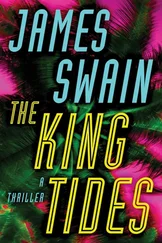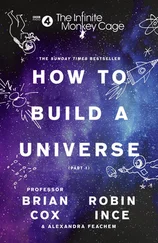When they reached school she burst out of the car, very nearly before it had altogether stopped. “Hey you,” he called. “No kiss?”
She shook her head, exasperated, but came around to where he stood beside the driver’s door and kissed him quickly and then yelled, “Bye, Dad!” over her shoulder and was gone down the sloping asphalt to the morning-wet grass and then to the playground. He returned to the driver’s seat and sat watching the children through the window. Barb was the one who both delivered and picked up their daughter each day and as he sat there he felt a strange grip of terror in his chest that rendered him immobile even as other vehicles began to nose their way around his car. It did not seem possible to just leave her here, in the company of children he did not know and adults he could not even see except for one or two wandering the playground. Who were these people to care for his daughter?
And yet she seemed quite comfortable with the entire situation. Of course she would be. It was only her school, after all: the place she went each weekday from eight in the morning until half past one. Even now she was in such frenetic motion that it was difficult to follow her amid the forms of the other children. She had not hesitated at all. In fact she had spent most of the morning pushing him to hurry up.
“We have to go, Dad,” she had told him.
“Mommy said you didn’t have to be there until eight.”
“That’s when the bell rings,” she had answered. “But I need to get there earlier.”
“Why?”
“To play.”
“Oh,” he had said. “Then we’d better get going.”
He could not remember when he had really set upon math the way he eventually did, as a serious academic subject, although he knew that by junior high school he was spending far more time on homework and studying than his peers and the proof was in his grades and the praise his teachers gave him. He knew that the other students looked at him as some kind of weird brainiac, a definition that he did not much mind and even took some pride in even if they used or tried to use it as a kind of taunt. When he was, on rare occasion, invited to some social event — a birthday party or a get-together at the local skating rink — he would most often turn them down. He did not tell his parents about these events. When his mother once found an invitation crumpled in the trash, he told her that going to the skating rink did not interest him. His response apparently did little to assuage her concern as she continued to believe his apparent lack of friends was something akin to a dysfunction. It might well have been one. “Where were you, Corcoran?” they would sometimes ask and he would have some excuse ready. He had a sick aunt he had to visit. He was out of town. He was too busy. Of course the question itself was a taunt, meant to underscore the simple fact that he was not and never would be one of them.
He told himself the same lie that he told his mother: that he was somehow beyond such childish gatherings, adding — this only to himself and not to her — that he did not want to be one of them, that they were crass and stupid and brutal. It was true that he preferred to remain home, working on engineering ideas, thinking about becoming an astronaut, already this a goal although not yet as concrete a goal as it would one day become. There were moments of loneliness, of course, at times so sharp and profound that he found it difficult to focus on anything else and even the numbers became a tedium, but the numbers always felt more comfortable than the roller-skating rink. The numbers were clear and beautiful and he understood them; the skating rink was endless circular motion with people he ultimately did not even like. It felt like an easy choice even though it was, at times, hardly as easy as he made it out to be.
“Sometimes you just have to put yourself out there, Keith,” his mother told him. “I know it can be scary but it’s good to be with people.”
He would answer her only in clipped, short sentences, careful even then not to reveal too much, wanting only for her to exit his room so that he could return to whatever book or article he had been reading, his columns of figures, the angles and materials of imagined machines he fantasized about one day building. He knew that she was right, or at least partially right, and he might have studied it as if it were a mathematics problem of some kind, searching for a solution. But he did not do so. Instead he poured himself into the numbers. This was what he had always done and this was what he continued to do on into high school and through college.
And then he met Barb.
He had acquired a job in a mid-level engineering firm, his first real job, which would have been utterly forgettable had he not met his future wife there. She had been wrestling with the soda machine and he had offered some replacement change for that which the machine had just taken and then fished into his pocket to find he had no coins to give. In his experience, that alone might have been the end of the conversation but Barbara Anderson had found his monotone response to the crisis—“I don’t have any change”—to be so funny that tears came to her eyes.
He did not understand her reaction but something about her stuck with him the rest of the day, and apparently stuck with her too because she found his desk at five o’clock and asked him to dinner. She was so beautiful; he could hardly believe his luck, but then there was also the sinking feeling that he had come to associate with virtually any experience that was not directly related to his work as an engineer. He would say the wrong thing or have the wrong response to something she said and that would be the awkward end to the evening.
But it had not turned out that way. “Sweetheart,” she told him many years later, “you tried so hard to be charming and failed so miserably that it couldn’t help but be charming. It’s just simple mathematics. Two negatives make a positive, right?”
His response had been to launch into a discussion of signs and sign functions, for while her statement was in essence true there were, of course, exceptions and complications. She had stopped him before he was through with the first sentence. “This is exactly what I mean,” she said, a thin smile on her face. “Best quit while you’re ahead. I love you but you can be overcharming sometimes.”
She asked him on the second or third date what his goals were and he told her, point-blank and without preamble. He planned on going to graduate school at MIT or perhaps Caltech or Stanford. He would earn his Ph.D. and then would take a commission in the Air Force, where he would do research and advance through the ranks. After four years or so he would take a position with NASA at Johnson Space Center with the ultimate goal of becoming an astronaut.
“You really have it all worked out,” she had said in response.
“Yes, I do,” he said.
“You think you can really do all that?”
“Yes.”
“Really?”
“Really.”
She was smiling but he was not and she held his gaze as her own smile faded. “Well, all right then,” she said at last. He thought that he might have lost her at last, that the bluntness of his answer had finally been too much for her and that he had crossed over some invisible line. But then she nodded and said simply, “That’s quite a plan,” and leaned across the table to kiss him.
He wondered for a long time if she really understood that he was serious, that the plan was solid and that he could accomplish his goals because Barb seemed almost too good to be true. While they were dating she would sometimes bring him dinner when he worked late at the office and more than once they made love there on the desk or on the floor. In that way she seemed to understand that the goals he had set for himself took commitment and discipline. She was smart, too; not like he was but certainly capable enough to help him with the graduate school application process, his application for financial aid, and then, later, to take care of the day-to-day work of running the household, all of which freed him to focus on the larger goal of one day becoming an astronaut. And if she did not truly understand what numbers meant to him, that could be forgiven, for how could she possibly understand that?
Читать дальше












